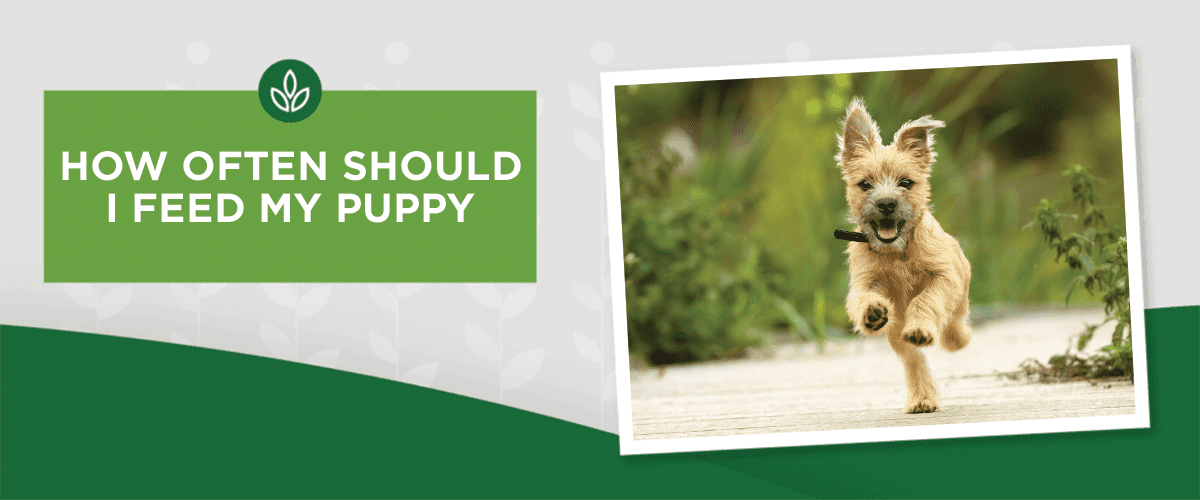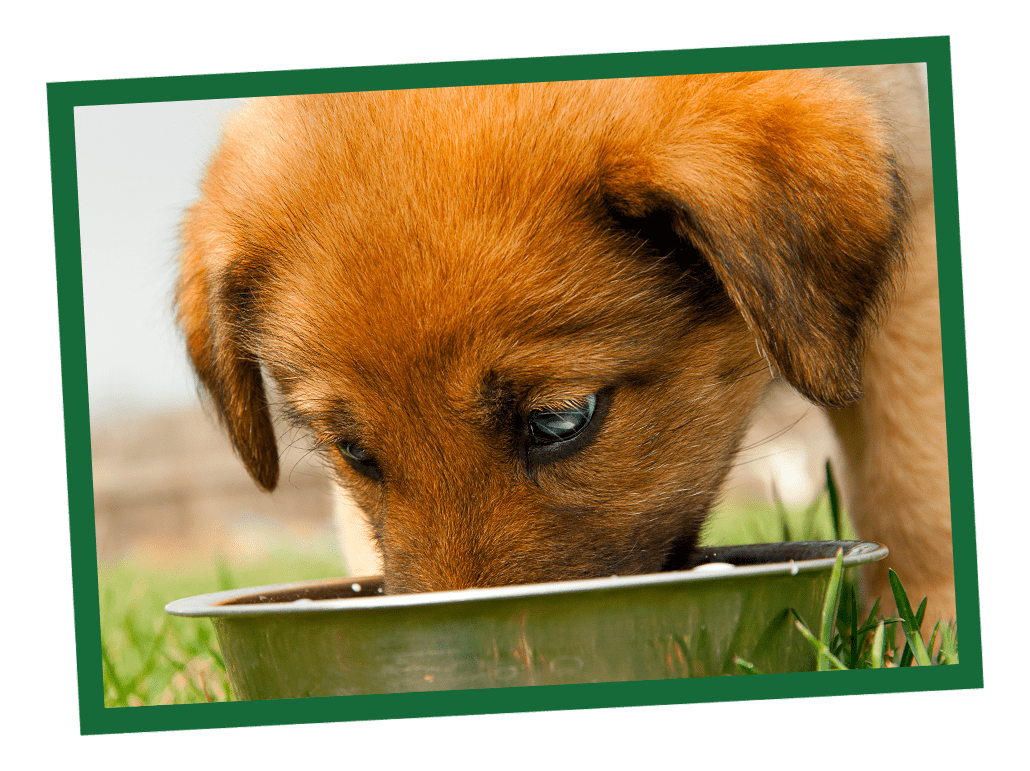How Often Should I Feed My Puppy?
Determining a consistent feeding routine for your puppy is an important part of responsible pet care. Puppies thrive on routine and a regular feeding schedule promotes optimal nutrition, digestion, and energy levels. Understanding how often to feed your puppy their dry kibble or canned, wet food can depend on their age, breed, size, health, and activity level. Continue reading to learn more about the factors that can influence the frequency of feedings, and how much to feed during your pup’s journey from puppy to adulthood.
Feeding Frequency for Your Puppy’s Life Stages
Puppies generally require a more frequent feeding schedule compared to adult dogs due to their rapid growth, higher energy levels, and smaller stomach capacity. In the early stages of puppyhood, from weaning to around 12 weeks of age, they often need to be fed four to six times a day to accommodate their smaller stomachs and provide a steady supply of nutrients needed to support healthy development.
As puppies enter the three-to-six-month range, their feeding frequency can be gradually reduced to three times a day, aligning with their ability to eat larger portions per meal.
By the time puppies reach six to twelve months, you can usually shift to a twice-daily feeding schedule. During this time, there is a transition from puppyhood to adolescence taking place as their growth rate typically stabilizes and a mature digestive system develops.
Keep in mind, the specific timeline for these feeding frequency changes can vary based on factors like breed, size, health condition, and individual growth rates. Consulting your vet and monitoring your puppy’s weight, body condition, and energy levels is important throughout these stages. Your vet can help you make the appropriate adjustments to their feeding routine as they mature into an adult dog.
Choosing the Right Food
When determining what food is best for your puppy, look for all natural and well balanced recipe that delivers nutrition through foods, not synthetics. It’s true that puppies have unique dietary requirements, and all of Nature’s Logic’s dog kibble recipes are support a puppy’s health through all life stages.
Establishing a Feeding Routine
Establishing a feeding routine for your puppy is important to maintain their health and support proper growth. You should choose times that work best for your lifestyle and for your dog.
- Consistency is Key: Stick to a consistent feeding schedule. Feed your puppy at the same times each day to establish a routine that they can rely on. This can help them avoid overeating since they’ll be confident in when they’ll be receiving their next meal.
- Portion Control: Follow recommended portion sizes based on your puppy’s age, size, and breed. Your food of choice will typically offer feeding a feeding guide on the bag or on their website. Overfeeding can lead to weight issues and potential health problems, while underfeeding may hinder growth.
- Choose a Quiet Feeding Area: Designate a quiet and calm area for feeding to minimize distractions and create a positive environment for your puppy to eat without anxiety.
- Avoid Free Feeding: Refrain from leaving food out all day. Instead, offer meals at specific times and pick up any uneaten food after about 20 minutes. This helps regulate their eating habits and makes housetraining more manageable.
- Monitor Weight and Adjust: Keep an eye on your puppy’s weight and adjust portion sizes accordingly. Consult your veterinarian for guidance on maintaining a healthy weight.
- Transition Gradually: If changing your puppy’s diet, make transitions gradually to prevent digestive upset. To ease your pet’s transition to the new diet, mix small amounts of the new food with the old over 7-10 days, increasing the proportions to maintain your dog’s optimal body weight. Our feeding guide is a great resource for adjusting your puppy’s diet.
- Positive Reinforcement: Use mealtimes as an opportunity for positive reinforcement and training. For example, you can associate a specific command with feeding, reinforcing good behavior.
- Hydration: Always provide fresh water in a clean bowl for your puppy, especially during and after meals. Proper hydration is crucial for their overall health.
- Be Mindful of Treats: While treats can be part of training, be mindful of the extra calories they add. Be sure to incorporate treat calories into the overall daily calorie count for your dog. As a guide, about 10% of a dog’s daily calorie intake can come from treats. Additionally, consider using kibble as a generally low calorie training treat.
- Feeding Multiple Dogs: If you’re feeding more than one dog, feeding them separately can help ensure they’re both getting the calories and nutrients they need, and one dog isn’t eating the others meal.
Common Feeding Challenges
Unfortunately, even when we follow best practices surrounding feeding routines, challenges at mealtime may happen. Some common issues and how to address them include the following:
- Picky Eating: To encourage them to eat, ensure the food is appropriate for their age, try different proteins or flavors, and avoid over-reliance on treats. If your pup is hesitant to eat their kibble, you may look at toppers like beef crumble or add some wet food to their bowl to help entice them.
- Overfeeding or Underfeeding: Follow feeding guidelines based on your puppy’s age, size, and breed. Many times, feeding guidelines will be available on your dog food bag or the company’s website. Be sure to regularly monitor their weight and adjust portions as needed. Work with your vet if you have questions or concerns.
- Inconsistent Schedule: Deviating from a consistent feeding schedule can disrupt the routine and affect the puppy’s behavior. Stick to a reliable timetable to foster mealtime predictability for your puppy.
- Dealing with Food Allergies: Some puppies may have allergies to specific ingredients. If you suspect a food allergy, consult your vet.
The Importance of Feedings and Routine
As your puppy grows up, the number of feedings a day will decrease however, maintaining a consistent feeding schedule remains important throughout their entire lives. Proper feeding frequency and routine help promote optimal nutrition, digestion, and energy levels for your loveable puppy all the way through adulthood.






